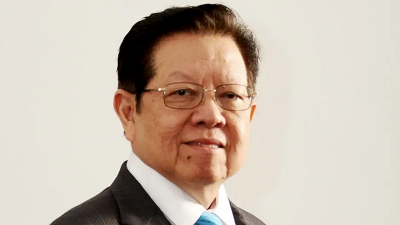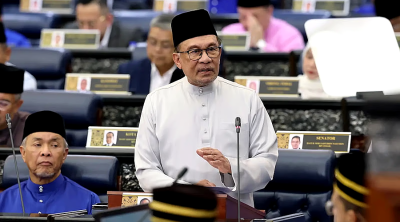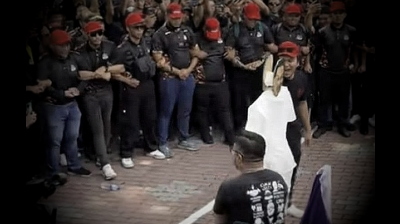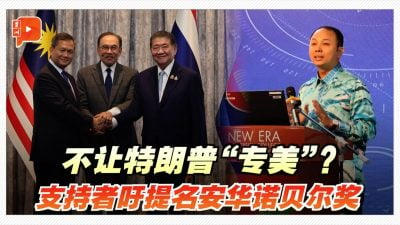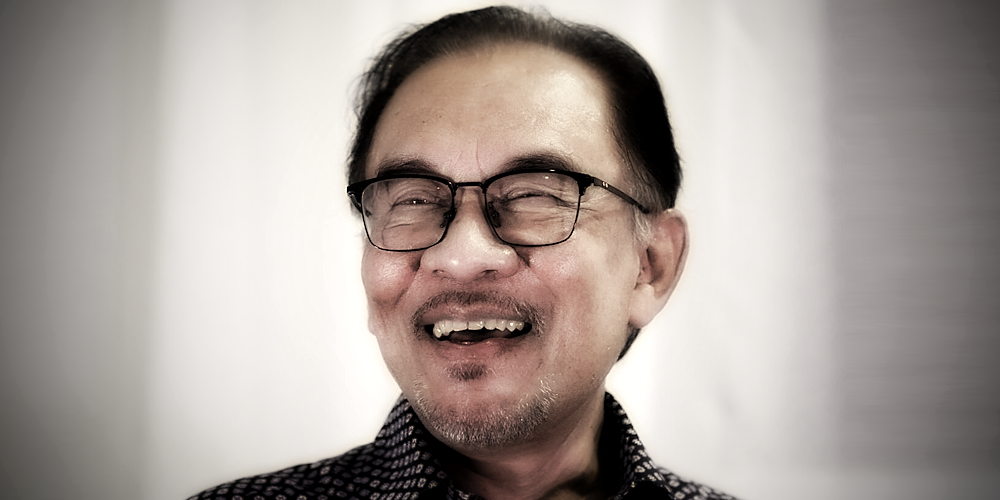
Is Anwar complicit in corruption?
Rosmah’s acquittal took place during Anwar’s administration, prompting some to hastily conclude that he condones corruption.
However, this perspective overlooks the complexities inherent in governance and the functioning of the legal system.
The legal framework is designed to operate independently of political narratives and influences.
While previous prime ministers may have engaged in questionable practices to sway judicial outcomes, Anwar has explicitly stated, “I did not meet or call any judge.”
The pivotal question remains: do we believe him?
Rosmah’s acquittal, along with Zahid’s DNAA, Najib’s impending house arrest, and Musa Aman’s governmental appointment, arises from a complex interplay of numerous factors and processes, including potential royal intervention.
To insinuate that Anwar orchestrates these developments is to ascribe to him powers and influence that he does not possess.
Blind to Anwar’s efforts to dismantle corruption
Anwar’s detractors are utterly oblivious to his tireless (and often thankless) efforts to dismantle the corrupt practices that have long plagued governance in Malaysia.
Not only does he face significant resistance and formidable obstacles, but he also endures an unrelenting barrage of unconstructive criticism from naysayers.
Throughout Malaysia’s history, few have possessed the will or courage to confront entrenched malpractices head-on.
Leaders like Anwar are indeed rare; they embody a unique combination of vision, courage, and determination – qualities that are essential for driving meaningful change.
Unfortunately, his critics fail to recognise the significance of his efforts within this broader context, diverting attention to isolated incidents or specific outcomes.
This dynamic is not harmless; it erodes the solidarity and trust among supporters paving the way for a culture of scepticism and division.
Ultimately it throws a spanner in the works making it more challenging to rally behind shared goals. United we stand, divided we fall.
Many have chosen to vent their frustrations on Anwar, casting him as the scapegoat for outcomes beyond individual control.
Unmet expectations leading to changed perceptions
Among Anwar’s current critics are many individuals who once fervently campaigned for him, holding high hopes for his leadership as prime minister.
They envisioned a future filled with promise, much like the excitement of newlyweds embarking on their journey together.
However, as reality sets in, disappointment and disillusionment start to creep in.
“I wanted a daughter, but she gave birth to a son!” “His snoring is unbearably loud – it’s impossible for me to sleep!”
These frustrations lead both partners to feel disheartened and deceived by the gap between their expectations and reality.
Fast forward two years, and they find themselves in divorce court, each blaming the other for their failed union.
The critical question arises: who has changed – the husband or the wife?
In truth, neither has fundamentally altered; rather, it is their perception of one another that has become tarnished by unmet expectations.
Perceptions can shift dramatically over time. What was once viewed through a lens of optimism can quickly devolve into disappointment when reality does not align with hopes.
Scapegoating Anwar
Our expectations that Rosmah would be punished were high, leading to feelings of disappointment and anger when she was acquitted.
In this context, many have chosen to vent their frustrations on Anwar, casting him as the scapegoat for outcomes beyond individual control.
This reaction highlights a broader tendency to direct our discontent toward leaders who are perceived as responsible for the systems in which they operate.
Instead of directing our anger towards one person, we should recalibrate our expectations and foster a more nuanced understanding of the intricate political landscape he has to navigate.
Shared commitment
Cultivating patience is indeed vital: acknowledging that progress may be gradual allows us to appreciate the efforts being made towards reform.
Let us transcend our individual disappointments and focus on the broader vision.
By engaging in constructive dialogue with leaders who are genuinely committed to change, we can contribute to a united front that is more effective in addressing the systemic issues facing our country.
Through shared commitment to a better Malaysia, we can collectively drive the transformation our nation urgently needs.
(Charles Chia Yong Tai is Member of Monsoons Malaysia.)
ADVERTISEMENT
ADVERTISEMENT







